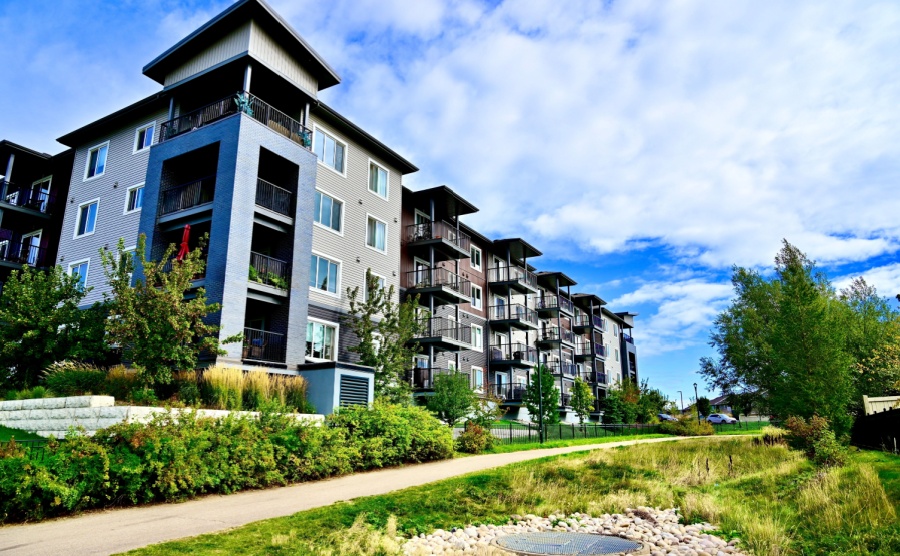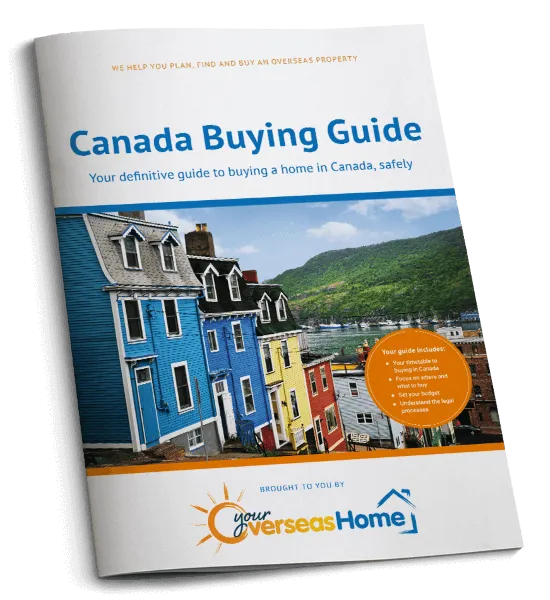As Canada’s northernmost major city, Edmonton is a thriving provincial capital with a unique mix of green space, cultural depth and economic diversity. While house prices in Toronto and Vancouver continue to rise, Edmonton remains one of Canada’s most affordable metropolitan markets – making it an attractive destination for overseas buyers looking to invest in the country’s property sector.
With a population exceeding one million and growing, Edmonton serves as a regional centre for energy, technology and education, while also offering a high standard of living. This guide will cover the benefits of property ownership in Edmonton, identify which neighbourhoods offer the best value, and explain how the purchase process works for foreign nationals.
Contents
- Why buy property in Edmonton?
- Climate and weather
- Property prices and what your budget can buy
- Best areas to buy in Edmonton
- Is Edmonton property a smart investment?
- How to buy property in Edmonton as an overseas buyer
- Next steps to get started
Why buy property in Edmonton?
Edmonton’s appeal lies in its combination of affordability, infrastructure and consistent demand. As Alberta’s capital, the city plays a major role in Canada’s energy corridor but has also made significant strides in diversifying into healthcare, education and technology.
The presence of the University of Alberta – one of the country’s top institutions – drives both research and rental demand. Cultural events like the Edmonton International Fringe Theatre Festival and Folk Music Festival create year-round footfall, and the local government continues to invest in public transport, green spaces and housing.
Unlike Vancouver or Toronto, Edmonton’s property market has seen moderate yet steady growth, avoiding rapid price spikes that deter many foreign investors. Buyers can find detached homes and condominiums at nearly half the cost of similar properties in Toronto, with no foreign buyer tax in Alberta as of 2025 – a big advantage for international clients. Always confirm the current status before making a purchase, as legislation can shift.
For data on Edmonton’s property market growth and trends, visit the Canadian Real Estate Association (CREA).
To learn more about the purchase process, claim your free copy of our Canada buying guide:
Climate and weather
Edmonton residents experience seasonal extremes, but the city is exceptionally well equipped to manage them. On average, Edmonton records over 2,300 hours of sunshine annually – more than any other major city in Canada. Long, dry summers bring pleasant daytime temperatures of around 23–25°C, while June daylight can last over 17 hours.
Winter, while cold, is relatively dry compared to other parts of Canada. Temperatures often fall below –20°C between December and February, but infrastructure such as heated bus stops, snow-cleared streets and underground walkways helps cushion the impact.
The dramatic seasonal change is part of the city’s rhythm. Summer invites festivals, cycling and river valley hikes, while winter offers ice skating, sledding and local ski hill adventures. It’s a climate that caters to both outdoor adventurers and those who appreciate a well-insulated home.
Property prices and what your budget can buy
As of early 2025, Edmonton is one of Canada’s most affordable urban housing markets, particularly when measured against income. The city provides broad options ranging from low-entry apartments to luxury estates.
Here’s an overview of current price ranges:
- One-bedroom flats: Starting from CAD $180,000 in outlying neighbourhoods; central new-builds start at around CAD $250,000
- Townhouses: Mid-range homes typically cost between CAD $300,000–$400,000, particularly in Mill Woods or Clareview
- Detached homes: Family-sized houses start from CAD $400,000 in residential areas like Castle Downs or Terwillegar
- Luxury homes: Properties in Windermere or Cameron Heights often start from CAD $1 million
Alberta does not impose a land transfer tax at provincial level, making total acquisition costs considerably lower than Ontario or British Columbia. However, you will need to budget for:
- Legal and administrative fees (estimated at CAD $1,500–$3,000)
- Home inspection costs (typically CAD $400–$800)
- Property tax (varies by district, adjusted annually)
- Currency conversion fees for overseas buyers
Best areas to buy in Edmonton
Edmonton’s layout includes 375 official neighbourhoods grouped into seven sectors. Choosing the right area depends on your goals – whether for lifestyle, rental yield or future resale potential.
Downtown and Oliver
For professionals and investors, downtown Edmonton and the adjacent Oliver neighbourhood offer high density living with easy access to restaurants, shopping and entertainment. These areas feature high-rise condominiums with views of the North Saskatchewan River and are walkable year-round.
Strathcona and Whyte Avenue
Just south of the river, Strathcona has a blend of historic charm and vibrant nightlife. It’s popular with students and young professionals due to its proximity to the University of Alberta. Expect a mix of century homes and apartments with excellent rental demand.
Windermere and Ambleside
These newer communities in southwest Edmonton offer detached homes, townhouses and upscale shopping within landscaped developments. Close to schools and parkland, they’re popular with families and long-stay residents.
Blatchford
A trailblazer in urban redevelopment, Blatchford is a car-light, climate-conscious development built on the old airport site. It prioritises geothermal energy, walkability and sustainable living, making it ideal for environmentally conscious buyers.
Mill Woods and The Meadows
These established districts in southeast Edmonton offer good value homes, solid infrastructure and diverse, tight-knit communities. With access to schools, shopping and public transport, these areas are well suited for families or buy-to-let investors.
Westmount and Glenora
These mature neighbourhoods offer tree-lined streets, heritage homes and easy access to downtown. Restoration projects are ongoing, increasing their appeal to buyers seeking character properties with stable long-term value.
Is Edmonton property a smart investment?
Edmonton remains a prudent investment choice, especially for buyers seeking consistency over rapid gains. Property prices have risen moderately over time, which protects investors from the volatility seen elsewhere in Canada.
Rental yields are attractive in Edmonton due to lower purchase prices and steady tenant demand. Students, young professionals and newcomers support a robust rental market, particularly near universities or transit corridors. In 2025, average gross rental yields in the city range between 4.5% and 6.5% depending on neighbourhood and property type (source: RentFaster.ca data analysis 2025).
Edmonton’s urban development projects, including the ongoing expansion of the light rail network, are likely to improve accessibility and future value in emerging precincts. Furthermore, Alberta’s financial climate – with no provincial sales tax and a business-friendly policy environment – adds to the appeal for commercial investors. All of which make for good reasons for buying property in Canada.
How to buy property in Edmonton as an overseas buyer
Buyers from outside Canada can purchase property in Alberta without restrictions in most scenarios. However, some Federal limitations persist on agricultural and recreational land for foreign buyers under the Prohibition on the Purchase of Residential Property by Non-Canadians Act (2023), although exemptions apply for certain visa holders and temporary residents.
The standard purchase process includes:
1. Define your budget: Work out how much you can afford in Canadian dollars, allowing 5–8% for extra fees. Use a currency specialist like Smart Currency Exchange early to avoid losses due to rate movements.
2. Organise financing: Non-resident buyers can typically borrow up to 65% of the purchase price. Lenders will require proof of income, bank statements and often a stronger credit profile than resident applicants.
3. Choose your estate agent: Select a licensed Edmonton agent who regularly works with overseas clients. They can shortlist suitable properties and manage viewings, offers and negotiations.
4. Submit your offer: Offers are made in writing. They often include conditions such as satisfactory inspection and financing approval. Once accepted, a conditional agreement is signed and your deposit is paid.
5. Engage a solicitor: A real estate lawyer will handle legal checks, title registration and final settlement. This is essential for overseas buyers unfamiliar with Canadian contracts or legal frameworks.
6. Finalise the transaction: On completion day, your lawyer transfers the final payment to the seller and registers the title. You’ll then receive the keys and full ownership.
7. Set up services: New owners should register with utility providers, take out insurance and, if renting, appoint a property manager. You are also advised to speak to a Canadian tax consultant if you plan to let the property.
Next steps to get started
With its strong services, accessible pricing and welcoming investment policies, Edmonton is a sound choice for property buyers in 2025. Whether your goal is personal use, rental income or long-term diversification, the city offers opportunities to match a range of budgets and lifestyles.
To begin your journey, speak with a trusted property consultant. We’ll guide you through budgeting, neighbourhood choices, and mortgage or legal questions. And if you’re exchanging currency from abroad, using a service like Smart Currency Exchange can protect your budget from losses caused by shifting conversion rates.
Book your free consultation now and let us help you take the next step towards buying your dream property in Canada.








